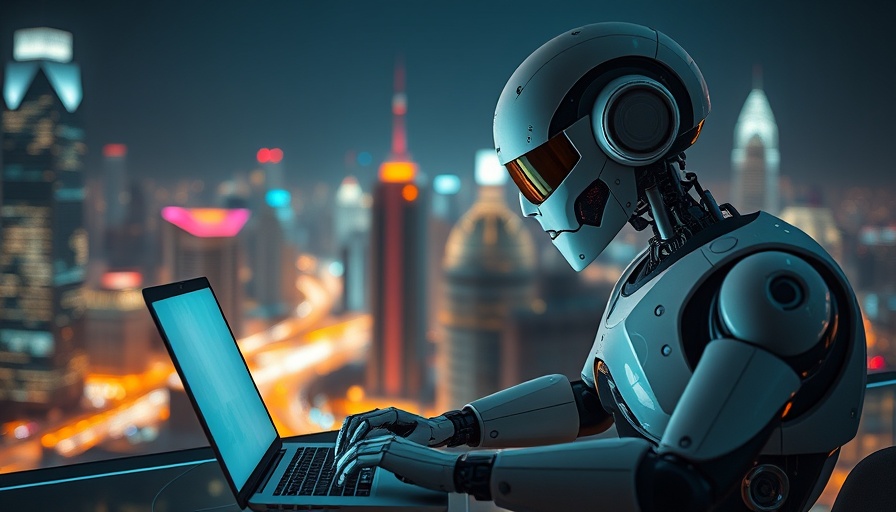
The Rise of Agentic AI: A New Era of Automation
Imagine a world where your to-do list shrinks without lifting a finger—this is not a distant fantasy but a looming reality for 2025, thanks to the evolution of Agentic AI. Moving beyond basic task execution, these intelligent systems are set to transform our daily lives by autonomously handling complex tasks and making decisions. Here’s a closer look at how Agentic AI is envisioned to change both personal and professional landscapes.
What is Agentic AI?
Agentic AI represents a marked shift in artificial intelligence capabilities. Unlike traditional setups where instructions are required at every stage, Agentic AI systems possess the learnt intelligence to interpret, plan, and act independently. This self-governance will enable them to address tasks ranging from scheduling appointments to managing home environments, significantly enhancing operational efficiency.
Benefits: Time-Saving and Enhanced Efficiency
One of the hallmark benefits of Agentic AI is its time-saving capabilities. As noted by Jonathan Rosenberg, CTO at Five9, these systems are both fast and efficient, streamlining workflows whether for customer interactions or internal operations. For instance, envision an AI that autonomously organizes a movie night, handles ticket bookings, and makes dinner reservations—all without any input from you. The fusion of natural language processing and decision-making engines allows for remarkable improvements in user experience, freeing employees to focus on strategic activities.
Key Applications Transforming Daily Life
Agentic AI has a wide array of applications across various fields. In healthcare, these systems could revolutionize patient engagement by autonomously managing appointment scheduling and navigation through insurance complexities. In business operations, Agentic AI can optimize supply chain processes by bridging multiple systems and reasoning in real time, ultimately driving efficiencies and cutting costs. The transition to data-driven workflows not only improves productivity but also enhances the decision-making process.
The Future of Work: AI as Collaborative Colleague
As we look towards 2025, expectations surrounding Agentic AI suggest that it will augment rather than replace human jobs. These systems could serve as sophisticated assistants, managing mundane tasks which allow humans to engage in higher-level thinking and creativity. Optimistically, experts believe that seamless human-AI collaboration can foster a new work culture where AI solutions enhance overall performance. This idea of AI-enhanced workflows offers opportunities for businesses to leverage employee skills in more productive ways.
Challenges Ahead: Ethics and Accountability
Despite its potential, the rise of Agentic AI isn’t without challenges. Concerns around ethics, transparency, and accountability loom large. Questions arise regarding who is accountable for the decisions made by these autonomous systems, especially when errors lead to negative outcomes or security breaches. As highlighted by AI expert Vinesh Sukumar, a strong governance framework becomes crucial for organizations deploying these technologies to mitigate risks and ensure responsible AI use.
Preparing for an Agentic Future
So, how can enterprises prepare for the Agentic AI revolution? A focused strategy that includes modernizing back-end systems, ensuring data accessibility, and developing secure APIs is a good starting point. Organizations are encouraged to take an incremental approach, aiming for early wins that build confidence in AI capabilities. By leveraging generative AI analytics, businesses can identify promising use cases for Agentic AI and build systems designed for continuous optimization.
The landscape for AI is evolving rapidly, and with thoughtful implementation and governance, organizations can harness the full potential of Agentic AI. This exciting frontier holds promise for not just efficiency gains but a significant enhancement of the human experience in both work environments and daily life.
As AI technology continues to evolve, so too should our strategies and approaches to integrate it into our lives. The promise of Agentic AI could help us focus on what truly matters, allowing us to invest time in creativity and innovation, rather than being bogged down by routine tasks. The road ahead is clear—the future is beckoning, and staying informed is crucial.
 Add Row
Add Row  Add
Add 


Write A Comment